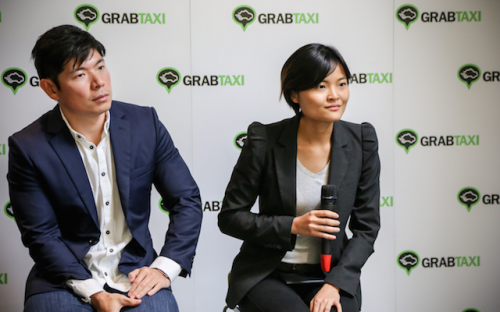The findings, from Poets&Quants, back up recent data from PitchBook, a venture capital and private equity research firm, which found VC-backed female entrepreneurs from 10 top MBA programs raised $2.6 billion during the same period.
Among the most successful is GrabTaxi (recently rebranded to Grab), a Chinese Uber rival which has raised $680 million in venture capital, and was co-founded by female Harvard MBA Hooi Ling Tan.
At Stanford Graduate School of Business, Ching-Yu Hu, co-founder of satellite imaging start-up Skybox, bought by Google for $500 million, is among 65 female entrepreneurs to have launched 61 companies.
The elite school benefits from its proximity to Silicon Valley, which is home to a slew of top venture funds. “At Stanford, in order to get a meeting with a VC, you just drive a few minutes down the road,” said Tom Sabel, associate director for careers at Stanford GSB.
Jessup Shean, a female MBA graduate from Wharton, co-founded CommonBond, the student loans start-up, which secured $35 million in venture capital in September.
Most rankings of VC-backed start-ups are dominated by US schools. At Columbia for example female MBAs raised $140 million; Haas School $95 million; NYU Stern $37 million. “It’s all about location,” said Rhonda Shrader, director of entrepreneurship for Berkeley’s Haas School, who spoke of venture capital in general.
However INSEAD of Europe, Asia and the Middle East is the exception, and is ranked highly by PitchBook, with $139 million raised by female grads’ start-ups.
Klarissa Chow, a female entrepreneur who runs two start-ups in Singapore, and who is on the MBA at UBC Sauder School of Business, said the city state is attractive for entrepreneurs.
“You can expect funding, tax rebates and even guidance from assigned consultants,” she said.
The data come as business schools strive to offer a market to start-up founders, who are often wary of the capital and time a top MBA program demands.
More than 30% of MBAs at Stanford GSB, UC San Diego and Oxford University’s Saïd School have launched start-ups, according to data from the FT.
“We focus on fund raising, how to build a network and a team, and how to test your [idea] with customers to mitigate the risk of starting a company,” said Caroline Daniels, senior lecturer in entrepreneurship at Babson College.
They also come as elite business schools push to recruit more women, with the likes of Kellogg School, Wharton, Simon, Tuck and Chicago Booth all reporting 40%+ female MBA enrolment.
“MBA programs….Need women to contribute their perspective and leadership in the classroom, in collaborative interactions with peers, and in innovating beyond the status quo,” said Maura Herson, director of the MBA at MIT Sloan School of Management.
Also in the Poets&Quants list are Off Grid Electric, a clean tech start-up that has raised $51 million, which was co-founded by female Oxford MBA Erica Mackey; and Stitch Fix, an online retailer with backing to the tune of $47 million, which was founded by Katrina Lake, a Harvard alumnus.
Yet less than 3% of all VC finance raised in the US between 2011 and 2013 went to companies led by women, according to Babson College.
This reflects gender inequalities across business, such as around pay and promotion.
Professor Ginny Gibson at Henley Business School suggested this is one reason for the increase in women becoming self-employed. She said it provides “greater flexibility and control over their earning power”.
RECAPTHA :
a3
64
37
6d








